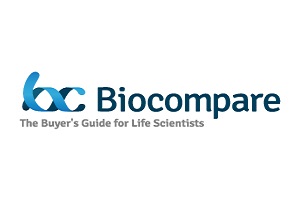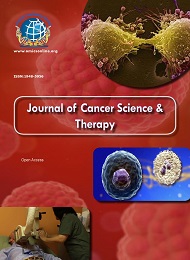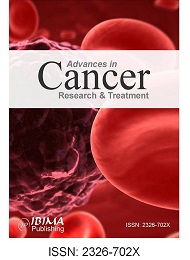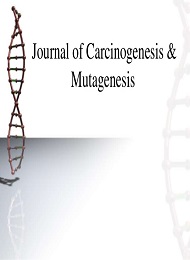Theme: Latest discoveries and innovations in the field of Cancer Biology & Drug Delivery
Renowned Speakers
Cancer Biology 2018
Conference Series LLC Ltd invites all the participants from all over the world to attend '2nd International Conference on Cancer Biology & Drug Delivery during October 03-04, 2018 in Los Angeles, California, USA which includes prompt keynote presentations, Oral talks, Poster presentations and Exhibitions.
Cancer cells are the cells that divide constantly, shaping strong tumors or flooding the blood with abnormal cells. Cell division is an ordinary procedure utilized by the body for development and repair. A parent cell partitions to shape two girl cells, and these little girl cells are utilized to assemble new tissue, or to supplant cells that have kicked the bucket accordingly of maturing or harm. Healthy cells quit partitioning when there is no longer a requirement for more little daughter cells, yet growth cells keep on producing duplicates. They are likewise ready to spread starting with one a player in the body then onto the next in a procedure known as metastasis.
Why to attend???
With individuals around the globe concentrated on finding out about Cancer Biology & Drug Delivery so this is your best chance to achieve the biggest gathering of members from the Cancer Biology, Drug Delivery group. this is your single best chance to achieve the biggest collection of members from the Universities and healing centers. Lead exhibitions of new screening instruments, disseminate data about novel operators and techniques and meet with very associated speakers, appearing of Cancer and also progressions in bosom disease treatment, Current strategies and discussions in bosom tumor treatment and get name acknowledgment at this 2-day occasion. Widely acclaimed speakers, the latest systems for screening and in addition for treatment, and the most up to date overhauls in Cancer fields are signs of this meeting.
A Unique Opportunity for Advertisers and Sponsors at this International event: cancerbiology.conferenceseries.com
Target Audience:
•Cancer Biologists
•Haematologist
•Industrialist
•Gynecologist
•Oncologists
•Pathologist
•Cell Biologist
•Nurses
•Cancer Stem Cell Specialists
•Residents
•Directors/Managers
•Pathologists
•Presidents & Vice Presidents/ Directors / Administrators
•Business Entrepreneurs
•Medical Devices Companies
•Cancer Associations/ Societies
Details of Cancer Biology Conferences 2018 in USA:
| Conference Name | Place | Date |
|---|---|---|
| Cancer Biology Conference 2018 | Los Angeles, California, USA | Oct 3-4, 2018 |
1. Cancer Biology:
Cancer frameworks science includes the utilization of frameworks science ways to deal with tumor inquire about, keeping in mind the end goal to ponder the illness as a complex versatile framework with rising properties at different natural scales. All the more unequivocally, in light of the fact that growth traverses numerous organic, spatial and transient scales, correspondence and input instruments over the scales make a profoundly complex dynamic framework. The connections between scales are not basic or fundamentally immediate, and now and again wind up noticeably combinatorial, so frameworks approaches are basic to assess these connections quantitatively and subjectively. Malignancy frameworks science hence receives an all-encompassing perspective of growth went for incorporating its numerous organic scales, including hereditary qualities, flagging systems, epigenetics, cell conduct, histology, (pre)clinical indications and the study of disease transmission.
- Molecular Biology of Cancer: Mechanisms, Targets, and Therapeutics
- Microbes Meet Cancer
- Research on Causes of Cancer
- NCI's Role in Cancer Biology Research
- Opportunities in Cancer Biology Research
- Statistical and mechanistic modelling of cancer progression and development
- Cancer therapeutic resistance
- Cancer 'vaccine' eliminates tumors in mice
- Cancer Genomics
2. Cancer stem cell:
Cancer stem cells (CSCs) are cancer cells (found within tumors or hematological cancers) that possess characteristics associated with normal stem cells, specifically the ability to give rise to all cell types found in a particular cancer sample. CSCs are therefore tumorigenic (tumor-forming), perhaps in contrast to other non-tumorigenic cancer cells. CSCs may generate tumors through the stem cell processes of self-renewal and differentiation into multiple cell types. Such cells are hypothesized to persist in tumors as a distinct population and cause relapse and metastasis by giving rise to new tumors. Therefore, development of specific therapies targeted at CSCs holds hope for improvement of survival and quality of life of cancer patients, especially for patients with metastatic disease.
- A matter of life and death: stem cell survival in tissue regeneration and tumors formation
- Stem cells: Bio banking breast cancers
- Can Stem cells turn into cancer?
- The cancer stem cell Markers
- Embryonic Cancer Stem Cells
3. Stem Cell Regenerative medicine& Tissue Engineering:
Regenerative medicine is a branch of translational research in tissue engineering and molecular biology which deals with the "process of replacing, engineering or regenerating human cells, tissues or organs to restore or establish normal function". This field holds the promise of engineering damaged tissues and organs by stimulating the body's own repair mechanisms to functionally heal previously irreparable tissues or organs. Regenerative medicine also includes the possibility of growing tissues and organs in the laboratory and implanting them when the body cannot heal itself. If a regenerated organ's cells would be derived from the patient's own tissue or cells, this would potentially solve the problem of the shortage of organs available for donation, and the problem of organ transplant rejection. Some of the biomedical approaches within the field of regenerative medicine may involve the use of stem cells. Examples include the injection of stem cells or progenitor cells obtained through directed differentiation (cell therapies); the induction of regeneration by biologically active molecules administered alone or as a secretion by infused cells (immunomodulation therapy); and transplantation of in vitro grown organs and tissues (tissue engineering).
- Bone marrow transplant
- Stem Cell Transplants May Work Better Than Existing Drug for Severe Multiple Sclerosis
- Skin Tissue Engineering: Was it Really So Simple a Challenge...?
- Stem cell therapies and neurological disorders of the brain: what is the truth?
- Current Applications of Tissue Engineering in Biomedicine
- Endogenous Cardiac Stem Cells
- Engineering Approaches to Regenerating Damaged Neural Tissue
- Transplantation of Embryonic Stem Cell-Derived Progenitor Cells for CNS Repair
4. Neuro oncology :
An oncogene is a gene that has the potential to cause cancer. In tumor cells, they are often mutated and/or expressed at high levels. Most normal cells will undergo a programmed form of rapid cell death (apoptosis) when critical functions are altered and malfunctioning. Activated oncogenes can cause those cells designated for apoptosis to survive and proliferate instead. Most oncogenes began as proto-oncogenes, normal genes involved in cell growth and proliferation or inhibition of apoptosis. If normal genes promoting cellular growth, through mutation, are up-regulated, (gain of function mutation) they will predispose the cell to cancer and are thus termed oncogenes. Usually multiple oncogenes, along with mutated apoptotic and/or tumor suppressor genes will all act in concert to cause cancer. Since the 1970s, dozens of oncogenes have been identified in human cancer. Many cancer drugs target the proteins encoded by oncogenes.
- Oncogene
- Neuroendocrine Carcinoma
- Neuroblastoma
- Osteosarcoma
- Neurodegeneration in Parkinson's disease
5. Cancer- New Technologies:
Cancer Technologies are those technical innovations which represent progressive developments within a field for competitive advantage.
- Humanized immune system and immune-oncology in the SRG rat
- Understanding Transporter-Mediated Drug-Drug Interactions Using Humanized Liver Mice
- Aging immune system may explain age-related cancer risk increase
- Bacteria play critical role in driving colon cancers
- Nanotechnology: an evidence-based analysis
- Cancer 'vaccine' eliminates tumors in mice
6. Cancer Innovation:
Innovation can be defined simply as a "new idea, device or method". However, innovation is often also viewed as the application of better solutions that meet new requirements, unarticulated needs, or existing market needs. This is accomplished through more-effective products, processes, services, technologies, or business models that are readily available to markets, governments and society. The term "innovation" can be defined as something original and more effective and, as a consequence, new, that "breaks into" the market or society. It is related to, but not the same as, invention, as innovation is more apt to involve the practical implementation of an invention to make a meaningful impact in the market or society, and not all innovations require an invention. Innovation is often manifested via the engineering process, when the problem being solved is of a technical or scientific nature. The opposite of innovation is exnovation.
- Genetically engineered probiotic that targets and kills cancer cells in the gut
- Identified a way to turn a humble cocktail of bacteria and vegetables into a targeted system that finds and kills colorectal cancer cells.
- Anticancer Activity of Guava (Psidium guajava) extracts
- The first humanized immune system rat.
- Lab-grown mini lungs successfully transplanted into mice
7. Molecular Genetics of Cancer:
Molecular genetics is the field of biology that studies the structure and function of genes at a molecular level and thus employs methods of both molecular biology and genetics. The study of chromosomes and gene expression of an organism can give insight into heredity, genetic variation, and mutations. This is useful in the study of developmental biology and in understanding and treating genetic diseases.
- Immune disorders
- Molecular Immunology
- Cancer and Haematology
- New vulnerability revealed in blood cancer development
- Gene therapy
- Human Genome
8. Cell Signalling and Cell Death:
Cell signaling (cell signalling in British English) is part of any communication process that governs basic activities of cells and coordinates all cell actions. The ability of cells to perceive and correctly respond to their microenvironment is the basis of development, tissue repair, and immunity, as well as normal tissue homeostasis. Errors in signaling interactions and cellular information processing are responsible for diseases such as cancer, autoimmunity, and diabetes. By understanding cell signaling, diseases may be treated more effectively and, theoretically, artificial tissues may be created Cell death is the event of a biological cell ceasing to carry out its functions. This may be the result of the natural process of old cells dying and being replaced by new ones, or may result from such factors as disease, localized injury, or the death of the organism of which the cells are part. Kinds of cell death include the following. Programmed cell death (or PCD) is cell death mediated by an intracellular program. PCD is carried out in a regulated process, which usually confers advantage during an organism's life-cycle. For example, the differentiation of fingers and toes in a developing human embryo occurs because cells between the fingers apoptose; the result is that the digits are separate. PCD serves fundamental functions during both plant and metazoa (multicellular animals) tissue development.
- Cell of origin provides clues for early detection of lung cancer
- Application and expansion of optogenetics, a technique to control brain cell activity with light
- An enzymes involved in cell growth and metabolism.
- Identify a key protein for regulating immune response
- Drug Sensitivity of Resistant Leukemia Cell Lines
- Cell death mechanisms of plant-derived anticancer drugs: beyond apoptosis
9. Cancer Bioinformatics:
Cancer bioinformatics is a critical and important part of the systems clinical medicine in cancer and the core tool and approach to carry out the investigations of cancer in systems clinical medicine. “Thematic Series on Cancer Bioinformatics” gather the strength of BMC Bioinformatics, BMC Cancer, Genome Medicine and Journal of Clinical Bioinformatics to headline the application of cancer bioinformatics for the development of bioinformatics methods, network biomarkers and precision medicine. The Series focuses on new developments in cancer bioinformatics and computational systems biology to explore the potential of clinical applications and improve the outcomes of patients with cancer.
- Structural Bioinformatics
- Gene Expression
- DNA Technology
- Genomics
- Biomedical engineering
10. Types of cancer :
Cancer is a group of diseases that involve abnormal increases in the number of cells, with the potential to invade or spread to other parts of the body. Not all tumors or lumps are cancerous; benign tumors are not classified as being cancer because they do not spread to other parts of the body.There are over 100 different known cancers that affect humans
- Lung Cancer
- Breast Cancer
- Brain Cancer
- Cervical Cancer
- Ovarian Cancer
- Prostate Cancer
- Non-Hodgkin's Lymphoma
- Pancreatic Cancer
11. Diagnostic Cancer:
There are several methods of diagnosing cancer. With advances in technologies that understand cancers better, there is a rise of number of diagnostic tools that can help detect cancers. Once suspected, diagnosis is usually made by pathologists and oncopathologists and imaging radiologists.Some types of cancer, particularly lymphomas, can be hard to classify, even for an expert. Most cancers need a second opinion regarding diagnosis before being sure of the diagnosis or stage and type.
- How Is Cancer Diagnosed?
- Genomic tumor assessment
- Mind/Body Medicine for Cancer
- Homeopathy and Cancer
- Tumor Markers
- Sentinel Lymph Node Biopsy
- Genomic testing
- Bone marrow aspiration
12. Leukemia:
Leukemia, also spelled leukaemia, is a group of cancers that usually begin in the bone marrow and result in high numbers of abnormal white blood cells. These white blood cells are not fully developed and are called blasts or leukemia cells. Symptoms may include bleeding and bruising problems, feeling tired, fever, and an increased risk of infections. These symptoms occur due to a lack of normal blood cells. Diagnosis is typically made by blood tests or bone marrow biopsy. The exact cause of leukemia is unknown. A combination of genetic factors and environmental (non inherited) factors are believed to play a role. Risk factors include smoking, ionizing radiation, some chemicals (such as benzene), prior chemotherapy, and Down syndrome. People with a family history of leukemia are also at higher risk. There are four main types of leukemia acute lymphoblastic leukemia (ALL), acute myeloid leukemia (AML), chronic lymphocytic leukemia (CLL) and chronic myeloid leukemia (CML) as well as a number of less common types. Leukemias and lymphomas both belong to a broader group of tumors that affect the blood, bone marrow, and lymphoid system, known as tumors of the hematopoietic and lymphoid tissues.
- Communication between Lung Tumors, Bones Contributes to Tumor Progression
- Misregulated Protein Breakdown Promotes Leukemias and Brain Cancer
- Gene Variants ID'd as Leukemia 'Double Whammy'
- Modular Gene Enhancer Promotes Leukemia
- HLF-Gene Controls Generation of Our Long-Term Immune System
- Important Mechanism of Epigenetic Gene Regulation Identified.
- How 'Sleeper Cells' in Cancerous Tumors Can Be Destroyed.
- Bolstering Fat Cells Offers Potential New Leukemia Treatment
- A new CRISPR-engineered cancer model to test therapeutics
13. Cancer Genetics:
Cancer genetics is the study in humans and other animals of heritable gene variants that cause or confer altered risk of tumour or hematological malignancy. Individual cancer risk varies and is influenced by familial and sporadic oncogene or tumour suppressor gene mutations as well as rare and common constitutional variants present in the population.
- Role of a DNA Repair Mechanism
- Insights from a Rare Genetic Disease May Help Treat Multiple Myeloma
- Study Links Mutations in Notch Gene to Role in B Cell Cancers
- Isolation of a gene coding for part of the T-cell receptor, a key to the immune system’s function
- First use of gene expression profiling to predict cancer outcomes
- Cancer Genetic Mutations
- Mitochondrial DNA may play more important role in metastatic cancer than previously thought
14. Cancer Medicine- Bio pharma Industry:
A biopharmaceutical, also known as a biologic(al) medical product, biological, or biologic, is any pharmaceutical drug product manufactured in, extracted from, or semisynthesized from biological sources. Different from totally synthesized pharmaceuticals, they include vaccines, blood, blood components, allergenics, somatic cells, gene therapies, tissues, recombinant therapeutic protein, and living cells used in cell therapy. Biologics can be composed of sugars, proteins, or nucleic acids or complex combinations of these substances, or may be living cells or tissues. They (or their precursors or components) are isolated from living sources—human, animal, plant, fungal, or microbial.
- Cancer drugs
- New Cancer Vaccines
- Generic chemotherapy drug
- Lipid Complex Injection for Cancer
- Cancer Chemo and Biologic Drugs
15. Cancer- Markers:
A tumor marker is a biomarker found in blood, urine, or body tissues that can be elevated by the presence of one or more types of cancer. There are many different tumor markers, each indicative of a particular disease process, and they are used in oncology to help detect the presence of cancer. An elevated level of a tumor marker can indicate cancer; however, there can also be other causes of the elevation (false positive values).Tumor markers can be produced directly by the tumor or by non-tumor cells as a response to the presence of a tumor. Although mammography, ultrasonography, computed tomography, magnetic resonance imaging scans, and tumor marker assays help in the staging and treatment of the cancer, they are usually not definitive diagnostic tests. The diagnosis is mostly confirmed by biopsy.
- Genomic biomarker
- Imaging biomarker
- Drug activity markers
- Transcriptomic biomarker
16. Cancer Stem cell Therapies and treatments:
Stem-cell therapy is the use of stem cells to treat or prevent a disease or condition. Bone marrow transplant is the most widely used stem-cell therapy, but some therapies derived from umbilical cord blood are also in use. Research is underway to develop various sources for stem cells, and to apply stem-cell treatments for neurodegenerative diseases and conditions such as diabetes, heart disease, and other conditions. Stem-cell therapy has become controversial following developments such as the ability of scientists to isolate and culture embryonic stem cells, to create stem cells using somatic cell nuclear transfer and their use of techniques to create induced pluripotent stem cells. This controversy is often related to abortion politics and to human cloning. Additionally, efforts to market treatments based on transplant of stored umbilical cord blood have been controversial.
- Stem Cells Found to Minimize Risks When Used to Treat Damaged Hearts
- Stem cell treatments Anti- Aging
- Stem Cells and Regenerative Medicine for Osteoarthritis
- Role of Stem Cells in Treatment of Neurological Disorders
- Stem cell treatments Brain tumor
- Big clues about the life and death of stem cells
- New Type of Stem Cell Line Produced Offers Expanded Potential for Research and Treatments
- First Skin-to-Eye Stem Cell Transplant in Humans Successful
17. Cancer- Medicinal Plants:
Increase in cases of various cancers has encouraged the researchers to discover novel, more effective drugs from plant sources. This study is a review of medicinal plants in Iran with already investigated anticancer effects on various cell lines. There are medicinal plants alongside their products with anticancer effects as well as the most important plant compounds responsible for the plants' anticancer effect were introduced. Phenolic and alkaloid compounds were demonstrated to have anticancer effects on various cancers in most studies. The plants and their active compounds exerted anticancer effects by removing free radicals and antioxidant effects, cell cycle arrest, induction of apoptosis, and inhibition of angiogenesis. The investigated plants in Iran contain the compounds that are able to contribute effectively to fighting cancer cells.
- Medicinal Plants: Their Use in Anticancer Treatment
- Iran's Medicinal Plants with Anticancer Effects
- Anti-Cancer Herbs and Plants
- Artemisia Annua
18. Stem Cell:
Stem cells are undifferentiated biological cells that can differentiate into specialized cells and can divide (through mitosis) to produce more stem cells. They are found in multicellular organisms. In mammals, there are two broad types of stem cells: embryonic stem cells, which are isolated from the inner cell mass of blastocysts, and adult stem cells, which are found in various tissues. In adult organisms, stem cells and progenitor cells act as a repair system for the body, replenishing adult tissues. In a developing embryo, stem cells can differentiate into all the specialized cells—ectoderm, endoderm and mesoderm (see induced pluripotent stem cells)—but also maintain the normal turnover of regenerative organs, such as blood, skin, or intestinal tissues.
- Adult Stem Cells (ASCs) and Types
- Embryonic Stem Cells (ESCs)
- Induced Pluripotent Stem Cells (iPSCs)
- Stem cells bioprocessing: an important milestone to move regenerative medicine research into the clinical arena
- Tissue engineering and regenerative medicine: manufacturing challenges.
- Regenerative pharmacology: the future is now
19. Cancer Treatments:
Cancer can be treated by surgery, chemotherapy, radiation therapy, hormonal therapy, targeted therapy and synthetic lethality. The choice of therapy depends upon the location and grade of the tumor and the stage of the disease, as well as the general state of the patient. A number of experimental cancer treatments are also under development. Under current estimates, two in five people will have cancer at some point in their lifetime. Complete removal of the cancer without damage to the rest of the body (that is, achieving cure with near-zero adverse effects) is the ideal goal of treatment and is often the goal in practice. Sometimes this can be accomplished by surgery, but the propensity of cancers to invade adjacent tissue or to spread to distant sites by microscopic metastasis often limits its effectiveness; and chemotherapy and radiotherapy can have a negative effect on normal cells. "Cancer" refers to a class of diseases; it is unlikely that there will ever be a single "cure for cancer" any more than there will be a single treatment for all infectious diseases. Angiogenesis inhibitors were once thought to have potential as a "silver bullet" treatment applicable to many types of cancer, but this has not been the case in practice
- Radiation Therapy
- Chemotherapy
- Immunotherapy
- Targeted Therapy
- Hormone Therapy
- Precision Medicine
20. Probiotics:
Probiotics are microorganisms that many believe provide health benefits when consumed. The term probiotic is currently used to name ingested microorganisms associated with benefits for humans and animals. The term came into more common use after 1980. The introduction of the concept (but not the term) is generally attributed to Nobel laureate Élie Metchnikoff, who postulated that yogurt-consuming Bulgarian peasants lived longer lives because of this custom. He suggested in 1907 that "the dependence of the intestinal microbes on the food makes it possible to adopt measures to modify the flora in our bodies and to replace the harmful microbes by useful microbes". A significant expansion of the potential market for probiotics has led to higher requirements for scientific substantiation of putative benefits conferred by the microorganisms.
- The Role of Probiotics in Cancer Treatment
- Probiotics and colon cancer
- Lactic acid bacteria and cancer: mechanistic perspective
- Probiotics supplements
- Probiotics tablets
21. Drug Delivery:
Medication conveyance alludes to approaches, plans, advances, and frameworks for transporting a pharmaceutical compound in the body as expected to securely accomplish its coveted restorative effect. It might include logical site-focusing inside the body, or it may include encouraging fundamental pharmacokinetics; regardless, it is commonly worried about both amount and length of medication nearness. Medication conveyance is regularly drawn closer by means of a medication's synthetic definition; however it might likewise include medicinal gadgets or medication gadget mix items. Medication conveyance is an idea vigorously coordinated with measurement shape and course of organization, the last here and there being considered piece of the definition. Drug delivery technologies modify drug release profile, absorption, distribution and elimination for the benefit of improving product efficacy and safety, as well as patient convenience and compliance. Drug release is from: diffusion, degradation, swelling, and affinity-based mechanisms.
- Thin film drug delivery
- Magnetic drug delivery
- Self-microemulsifying drug delivery system
- Acoustic targeted drug delivery
- Neural drug delivery systems
- Drug delivery to the brain
- Drug carrier
- Bovine submaxillary mucin coatings
- Retrometabolic drug design
- Asymmetric membrane capsule
Cancer Biology & Drug Delivery Market Overview:
Global Oncology/Cancer Biology Market is relied upon to collect $111.9 billion by 2020, enlisting a CAGR of 7.1% amid the conjecture time frame 2014 to 2020. Late advance in organic treatments has enlarged the size of restorative focuses for treatment of malignancy with the distinguishing proof of tumor cell particular qualities. Immunotherapies/biologics are developing as potential treatments to locate the changeless cure for different growth sorts. Among different biologics, drugs in view of monoclonal antibodies (mAbs) have increased critical consideration as of late because of their high adequacy.
Worldwide tumor drugs showcase represented $78,238.9 million of every 2015. The growth drugs advertise is driven by the developing predominance of different sorts of tumor, expanding interest of organic and focused on sedate treatments, persistent patent expiry of key disease drugs and the rising effect of biosimilars. In any case, the high cost of medication improvement, the danger of disappointment and the antagonistic impacts of disease tranquilize treatment, especially chemotherapy, blocks the market development. Created countries have executed strict directions for the outline and advancement of growth drugs. USFDA and European Union have embraced noteworthy activities to fuel the development of the growth drugs showcase by giving pre-advertise endorsement to potential medications under clinical advancement. Asia-Pacific and LAMEA are promising districts for leading clinical trials due a vast populace base and the minimal effort of clinical trials when contrasted with North America and Europe. In any case, headway of growth medicate look into inferable from natural/directed treatments and customized meds hold promising open doors for pharmaceutical, bio-pharmaceutical and biotechnology organizations occupied with creating disease drugs.
Key Findings of Oncology Drugs Market:
Immunotherapy/natural medications portion anticipated that would develop at a twofold digit CAGR amid the figure time frame and would develop at the quickest rate. Blood malignancy is the real income producing fragment in the worldwide oncology tranquilize application showcase be that as it may, lung tumor section is relied upon to become quickest among all. At present, North America gathers a noteworthy offer in the oncology drugs advertise, as far as market measure. Asia Pacific oncology medicate showcase is overwhelmed by China and Japan, together adding to ~60% of the provincial market income in 2014. A lion's share of the oncology medicate makers have received joint effort and securing as key formative methodologies to accomplish a focused edge. In addition, organizations are likewise shaping vital partnerships to quicken the procedure of clinical trials. These procedures have turned out to be successful in helping key market players hold their driving positions in the worldwide oncology drugs advertise. Enter organizations profiled in the report are Roche diagnostics, Novartis AG, Celgene Corporation, AstraZeneca, Johnson and Johnson, Merck and Co., Eli Lilly and Co., Amgen Inc., Pfizer and GlaxoSmithKline.
Market Segment Review:
The focused structure of the worldwide malignancy drugs advertise is broke down utilizing Porter's Five Forces Model. As indicated by Porter's investigation, the haggling energy of purchasers is low due high cost of medications, lesser information about the items/drugs. Nonetheless, the dealing energy of providers tends to direct inferable from their lower fixation and prerequisite of higher capital venture. Growth drugs are for the most part secured with IPR rights in this manner, prompts increment in the boundaries for new participants.
Worldwide tumor drugs showcase by helpful modalities is portioned into chemotherapy, Targeted treatment, Immunotherapy, Hormonal treatment and others. Immunotherapy overwhelms the worldwide market for tumor medicates because of its high adequacy and less reactions. Monoclonal antibodies, for example, trastuzumab, bevacizumab and rituximab are potential immunotherapeutic specialists that have accomplished generous deals. The growth immunotherapy showcase is essentially determined by tremendous research speculations from multinational organizations alongside inquire about coordinated efforts for the improvement of malignancy immunotherapeutics. In the course of recent years, directed malignancy treatments have increased noteworthy consideration because of their tumor cell particular activity in shielding solid cells from the lethal impacts of growth drugs.
Worldwide growth drugs showcase by malignancy sort is portioned into Blood tumor, Breast disease, gastrointestinal tract growth, Prostate tumor, Lung Cancer, Skin Cancer and other malignancy. Among these distinctive growth sorts, blood disease was the biggest income creating section in 2015. The development of blood disease fragment is significantly because of the high cost of the medications used to treat blood growth. The pervasiveness of blood growth is less in created countries, be that as it may, the determination rate is over 90% and practically every individual determined to have blood malignancy looks for finish treatment for the cure of blood tumor. Because of the high expendable wages of purchasers in created countries, costly medication treatment of blood malignancy is reasonable in these districts. Lion's share of the as of late advanced biologics (drugs in view of monoclonal antibodies) demonstrated a noteworthy cure for blood tumor; consequently, use rate of these medication is high, in spite of their high cost.
Geographic Review:
Geologically, the Global disease drugs advertise fragments into North America, Europe, Asia-Pacific and LAMEA. North America commands the market for disease sedates as the district houses organizations occupied with the advancement of tumor drugs. Moreover, the dispensable livelihoods of customers and medical coverage cover forever undermining sicknesses in North America are high which expands the reasonableness of disease treatment. As of late, US Food and Drug Administration (USFDA) has taken activities to help the development of tumor drugs advertise by giving pre-showcase endorsement to the medications, which are in the clinical stage; in this way, quickening the clinical advancement.
Countless in North America demonstrate generous interest in R&D from multinational organizations and also investigate associations. Europe is the second biggest market for malignancy sedates and is relied upon to develop at a CAGR of 6.8% amid the investigation time frame. In North America and Europe, a dominant part of the multinational players have concentrated on the improvement of biologics or immunotherapeutic attributable to its high viability and target particular activity. The exploration for tumor medicates in Asia-Pacific and LAMEA is rising with the concentration towards the advancement of biosimilars. The commonness of different growth sorts is high in creating nations which render these areas as promising areas to lead clinical trials. In addition, the cost of clinical research is low in these districts because of the accessibility of an enormous populace base and ideal government approaches.
Japan Oncology/Cancer Drugs Market Review:
Japan has largest share to the total Asia Pacific cancer drug market due to the high prevalence of cancer in Japanese population. Lung cancer is the major cause of death in Japanese population. The total healthcare expenditure of japan was $495 billion in 2013.
Several new drugs are now approved in Japan, including Afinitor, Avastin, Jevtana, Sutent and Zytiga, which could trigger a growth of cancer drug market and a shift in the treatment paradigm in the foreseen future.
Access to new drugs might be delayed in Japan due to strict regulatory processes in Japan. Pharmaceutical and Medical Devices Agency (PMDA) and Ministry of Health, Labor and Welfare (MHLW), are the regulatory agencies in Japan. Jevtana (Cabazitaxel acetonate) and MabCampath (Alemtuzumab), by Sanofi, are recently approved cancer drugs in Japan.
Japanese government health insurance is the most generous in Asia and offers the highest rates of reimbursement. The government offers coverage for approved treatments, including treatments for cancer, to all citizens. The treatments are eligible for coverage as long as they are approved by Japan’s MHLW.
Japan oncology/cancer drugs market by therapeutic modalities, 2020
Competitive Review:
The key players profiled in this report include Amgen Inc., Johnson & Johnson, GlaxoSmithKline, Eli lilly & Co., Roche diagnostics, Novartis AG, Pfizer, Merck & Co., Sanofi, and Celgene Corporation. Roche, Novartis and Celgene are the top three players in Global cancer drugs market with a wide of cancer product portfolio. The three companies contribute to ~60% of the total market share. The immunotherapeutics developed by Roche namely Rituxan, Avastin and Herceptin achieved blockbuster sales in 2013. A majority of the cancer drug manufacturers have adopted collaboration, approval and acquisition as their key developmental strategies to achieve a competitive edge. Moreover, companies are forming strategic alliances to accelerate their clinical developments. These strategies have proved to be effective in helping key players retain their leading positions in the global market.
ONCOLOGY DRUGS MARKET KEY BENEFITS
-
The report provides the quantitative analysis of the current trends, size and estimations for the forecast period 2013-2020 that assists in identifying the prevailing opportunities to capitalize on
-
The report helps in understanding the strategies adopted by various companies for consolidating their positions in the industry.
-
The report provides comprehensive analysis of factors that drive and restrict the growth of the cancer drugs market
-
Demand and supply conditions of cancer drugs across all geographic regions are comprehensively analyzed
-
Competitive intelligence (of leading manufacturers) helps in understanding the competitive market scenario and opportunities across the geographies
-
SWOT analysis of the key market players is provided to illustrate the business strategies adopted by the companies
ONCOLOGY/CANCER DRUGS MARKET SEGMENTATION
The Oncology drugs market is segmented by the therapeutic modalities, cancer types and geography.
BY THERAPEUTIC MODALITIES
-
Chemotherapy
-
Targeted Therapy
-
Immunotherapy (Biologic Therapy)
-
Hormonal Therapy
-
Others
BY CANCER TYPES
-
Blood Cancer
-
Breast Cancer
-
Gastrointestinal Cancer
-
Prostate Cancer
-
Respiratory/Lung Cancer
-
Skin Cancer
-
Other Cancers
BY GEOGRAPHY
- North America
- United States
- Canada
- Mexico
-
Europe
- Germany
- France
- United Kingdom
- Others
-
Asia-Pacific
- India
- China
- Japan
- Australia
- Others
-
LAMEA
- GCC (Gulf Corporation Council)
- Others
Importance and Scope:
The Importance of Cancer 2018 is to redesign, clinically critical gathering of people concerning the confirmation supporting ebb and flow Advances in finding and treatment in the field of Cancer Research. Specialists and researchers over the globe will trade perspectives and ideas. Understudies/Scholars from various colleges assemble and improve their insight. Demonstrative and Pharmaceutical firms will show their novel items and administrations, which permit them to build up their business universally. Cancer 2018 is a universal stage for showing research, exchanging ideas concerning it and along these lines, contributes towards spreading data in research strategies, in analysis and counteractive action of Caner and Related sickness and so forth for the upside of every youthful specialist, Pharmaceutical firms, researchers and the scholarly world. Cancer 2018 is wherever the more drawn out term of show new diagnostics strategies and Instruments utilized for treatment and finding and novel medication. This occasion brings along senior brand advertisers and office administrators to investigate advancing and publicizing openings on Pharmaceutical partnerships.
Why Los Angeles, USA?
Los Angeles officially the City of Los Angeles and often known by its initials L.A., is the cultural, financial, and commercial center of Southern California. With a U.S. Census-estimated 2016 population of 3,976,322 it is the second most populous city in the United States (after New York City) and the most populous city in the state of California. There are three public universities located within the city limits: California State University, Los Angeles (CSULA), California State University, Northridge (CSUN) and University of California, Los Angeles (UCLA). There are 841 museums and art galleries in Los Angeles County. In fact, Los Angeles has more museums per capita than any other city in the world. Some of the notable museums are the Los Angeles County Museum of Art (the largest art museum in the Western United States.
Conference Highlights:
Tracks 1: Cancer
Track 2: Cancer Biology
Track 3: Organ Specific Cancer
Track 4: Drug Delivery
Track 5: Hematology-Oncology
Track 6: Cancer Therapy
Track 7: Oncogenomics
Track 8: Cancer Imaging
Track 9: Cancer Biomarkers
Track 10: Cancer Pharmacology
Track 11: Gynecologic Oncology
Track 12: Cancer Stem Cells
Track 13: Molecular Cancer
Track 14: DNA Repair and Cancer
Track 15: Immunotherapy
Track 16: Cancer Treatments and Vaccines
Track 17: Chemotherapy
Track 18: Cancer Epidemiology
Track 19: Global Market for Cancer Treatments
Track 20: Cancer Treatments and Market Dynamics
Why to attend Cancer Biology & Drug Delivery?
Team Cancer Biology & Drug Delivery aims to deliver a perfect platform to the scientific and industry personnel to share their knowledge and expertise. It gives opportunity to conduct demonstrations, distribute information, meet with current and potential speakers/Delegates all around the world which are working on the very emerging field of Cancer Biology & Drug Delivery, and receive name recognition at this 2-day event. World-renowned speakers, the most recent techniques, tactics, and the newest updates in Cancer Biology & Drug Delivery fields are hallmarks of this conference.
A Unique Opportunity for Advertisers and Sponsors at this International event:
https://cancerbiology.conferenceseries.com/
Target Audience:
For Cancer Biology & Drug Delivery mainly the target audiences are Cancer Biology & Drug Delivery Scientists, Students, Researchers, Faculty, Cancer Biology & Drug Delivery Associations and Societies, Medical Colleges, Oncologist, Pathologist, Haematologist, Neurologist and Nurses.
Hospitals related to Cancer in California:
- California Northstate University College of Medicine
- Charles R. Drew University of Medicine and Science
- Keck School of Medicine of University of Southern California
- Loma Linda University School of Medicine
- Stanford University School of Medicine
- University of California, Davis School of Medicine
- University of California, Irvine School of Medicine
- David Geffen School of Medicine at UCLA
- University of California, Riverside School of Medicine
- University of California, San Diego School of Medicine
-
Hospitals related to Cancer in USA:
There are 902 Hospitals working on Cancer in USA few of them are listed below:
-
Memorial Sloan Kettering (MSK) Cancer Center, New York City
-
University of Texas M.D. Anderson Cancer Center, Houston
-
Mayo Clinic, Rochester, Minnesota
-
Dana-Farber/Brigham and Women's Cancer Center, Boston
-
Johns Hopkins Hospital, Baltimore, Maryland
-
University of Washington Medical Center, Seattle
-
Massachusetts General Hospital, Boston
-
UCSF Medical Center, San Francisco
-
Stanford Hospital and Clinics, Stanford, California
-
Hospitals of the University of Pennsylvania–Penn Presbyterian, Philadelphia
-
City of Hope, Los Angeles
-
Cleveland Clinic
-
New York–Presbyterian University Hospital of Columbia and Cornell, New York City
-
University of Colorado Hospital, Denver
-
Moffitt Cancer Center, Tampa, Florida
-
Northwestern Memorial Hospital, Chicago
-
Seidman Cancer Center at UH Case Medical, Cleveland
-
Fox Chase Cancer Center, Philadelphia
There are 9368 Hospitals working on Cancer Worldwide few of them are listed below:
-
University of Texas MD Anderson Cancer Center (Houston)
-
University of Texas MD Anderson Cancer Center (Houston)
-
Memorial Sloan-Kettering Cancer Center (New York)
-
Memorial Sloan-Kettering Cancer Center (New York)
-
Johns Hopkins Hospital (Baltimore)
-
Mayo Clinic (Rochester, Minn.)
-
Dana-Farber/Brigham and Women's Cancer Center (Boston)
-
Duke University Medical Center (Durham, N.C.)
-
Seattle Cancer Care Alliance/University of Washington Medical Center (Seattle)
-
University of Chicago Hospitals
-
Johns Hopkins Hospital (Baltimore) and UCLA Medical Center (Los Angeles)
-
Massachusetts General Hospital (Boston)
-
UCLA Medical Center (Los Angeles)
-
Massachusetts General Hospital (Boston)
-
Roswell Park Cancer Institute (Buffalo, N.Y.)
-
UCSF Medical Center (San Francisco)
-
Top universities/ College related to Cancer in Philadelphia:
-
Abramson Family Cancer Research Institute
-
Wistar Institute: Conejo-Garcia Jose R MD
-
Fox Chase Cancer Center
-
Cancer Treatment Centers of America at Eastern Regional Medical Center
-
Thomas Jefferson University
-
Abramson Cancer Center Hospital University of Pennsylvania (HUP)
-
Kimmel Cancer Center
-
University of Pennsylvania Hematology/Oncology Fellowship
-
Fels Institute
-
Abramson Cancer Center: Feldman Arthur M MD
-
Top universities/ College related to Cancer in USA:
There are about 60 universities/ Colleges working on Cancer in USA few of them are listed below:
-
Massachusetts Institute of Technology
-
University of California at Los Angeles
-
Johns Hopkins University
-
Texas A & M University
-
Princeton University
-
California Institute of Technology – Caltech
-
Yale University
-
Cornell University
-
Georgia University of Technology
-
Emory University
-
Stanford University
-
Northwestern University
-
University of Miami
-
Top universities/ College related to Cancer in Worldwide:
There are 2443 universities/ Colleges working on Cancer Worldwide few of them are listed below:
-
Harvard University
-
University of Cambridge
-
University of Oxford
-
Massachusetts Institute of Technology
-
Johns Hopkins University
-
Stanford University
-
University of California, San Francisco (UCSF)
-
Yale University
-
Karolinska Instituet
-
University of California, Los Angeles (UCLA)
-
The University of Sydney
-
The University of Melbourne
-
King’s College London
-
University of Michigan
-
McGill University
-
The University of Edinburgh
-
Kyoto University
-
Hong Kong University of Science and Technology
-
University of Tsukuba
-
Major Associations/ Societies related to Cancer
-
American Cancer Society
-
Cancer Research Institute
-
Children’s Cancer research Fund
-
The Lance Armstrong Foundation
-
Vietnam Cancer Charities Fund
-
Cancer Survivor’s Fund
-
Acoustic Neuroma Association
-
Acoustic Neuroma Association of Australia
-
Acoustic Neuroma Association of Canada
-
American Association for Cancer Research
-
American Bone Marrow Donor Registry
-
American Brain Tumor Association
-
Companies related to Cancer Worldwide:
-
Abbott Laboratories
-
Abbott Nutrition
-
Abbvie And Biogen
-
Acadia Pharmaceuticals
-
Acorda Therapeutics
-
Actelion Pharmaceuticals
-
Acura Pharmaceuticals
-
Aegerion Pharmaceuticals
-
Akrimax Pharmaceuticals
-
Alcon Laboratories
-
Alexion Pharmaceuticals
-
Amneal Pharmaceuticals
-
Amphastar Pharmaceuticals
-
Ani Pharmaceuticals
-
Aptalis Pharmaceutical Technologies
-
Aqua Pharmaceuticals
-
Atnahs Pharma
-
Aytu Bioscience
The success of the International Conference on Cancer Biology & Drug Delivery has given us the prospect to bring the gathering one more time. Conference Series LLC Ltd hosted the “2nd International Conference on Cancer Biology & Drug Delivery” during October 03-04, 2018 in Los Angeles, USA
The conference was focused on Cancer Biology & Drug Delivery studies with the theme ‘’Novel Techniques and Emerging Research in Cancer”. The meeting engrossed a vicinity of comprehensive discussions on novel subjects like Cancer and Cell Biology, Organ Specific Cancer, Oncogenomics, Cancer Imaging, Cancer Biomarkers, Cancer Pharmacology, Hematology-Oncology, Epithelial Cancers, Renal Cell Cancers, Gynecologic Oncology, Cancer Stem Cells, Molecular Cancer, DNA Repair and Cancer, Immunotherapy, Cancer Therapy, Drug Delivery, Targeted Drug Delivery, Drug Transplantation Techniques, Cancer Treatments and Vaccines, Cancer Screening, Chemotherapy, Cancer Epidemiology, Global Market for Cancer Treatments.
The conference was embarked with an opening ceremony followed by Keynote sessions and followed by series of lectures delivered by both Honorable Guests and members of the Keynote forum. The adepts who promulgated the theme with their exquisite talk were:
- Diana Anderson, University of Bradford, UK
- Michael Retsky, Harvard TH Chan School of Public Health, USA
- Jianhua Luo, University of Pittsburgh School of Medicine, USA
- Andrei L Gartel, University of Illinois, USA
- Myron Arlen, Hofstra University, USA
Best Poster Awardees:
Tittle: - A DM1 gold nanoparticle (MTC-100038) is more effective than sorafenib in multiple murine models of hepatocellular carcinoma
Kelly Conlon, Midatech Pharma, UK
Conference Series LLC Ltd offers its heartfelt appreciation to Organizing Committee Members, dexterous of field, various outside experts, company representatives and is obliged to other eminent personalities who interlaced with Conference Series LLC Ltd and supported the conference in every aspect, without which the conference would not have been possible.
Your rejoinder is our inspiration; keeping this motto in mind and being witnessed the triumph of Cancer 2017, Conference Series LLC Ltd would like to announce the commencement of the “2nd International Conference on Cancer Biology & Drug Delivery” to be held during October 03-04, 2018, Los Angeles, USA. We welcome all the eminent researchers, students and delegate participants to take part in this upcoming conference to witness invaluable scientific discussions and contribute to the future innovations in the field of Cancer Biology & Drug Delivery.
Past Conference link: https://www.conferenceseries.com/Past_Reports/cancerbiology-2018-pas
For More details: https://cancerbiology.conferenceseries.com/
Let us meet again @ Cancer 2018
Conference Highlights
- Cancer Biology
- Cancer stem cell
- Stem Cell Regenerative medicine& Tissue Engineering
- Neuro oncology
- Cancer- New Technologies
- Cancer Innovation
- Molecular Genetics of Cancer
- Cell Signalling and Cell Death
- Cancer Bioinformatics
- Types of cancer
- Diagnostic Cancer
- Leukaemia
- Cancer Genetics
- Cancer Medicine- Bio pharma Industry
- Cancer- Markers
- Cancer Stem cell Therapies and treatments
- Cancer- Medicinal Plants
- Stem Cell
- Cancer Treatments
- Probiotics
- Drug Delivery
To share your views and research, please click here to register for the Conference.
To Collaborate Scientific Professionals around the World
| Conference Date | October 03-04, 2018 | ||
| Sponsors & Exhibitors |
|
||
| Speaker Opportunity Closed | Day 1 | Day 2 | |
| Poster Opportunity Closed | Click Here to View | ||
Useful Links
Special Issues
All accepted abstracts will be published in respective Our International Journals.
- Journal of Cancer Science and Therapy
- Journal of Carcinogenesis and Mutagenesis
- Advances in Oncology Research and Treatments
Abstracts will be provided with Digital Object Identifier by
















